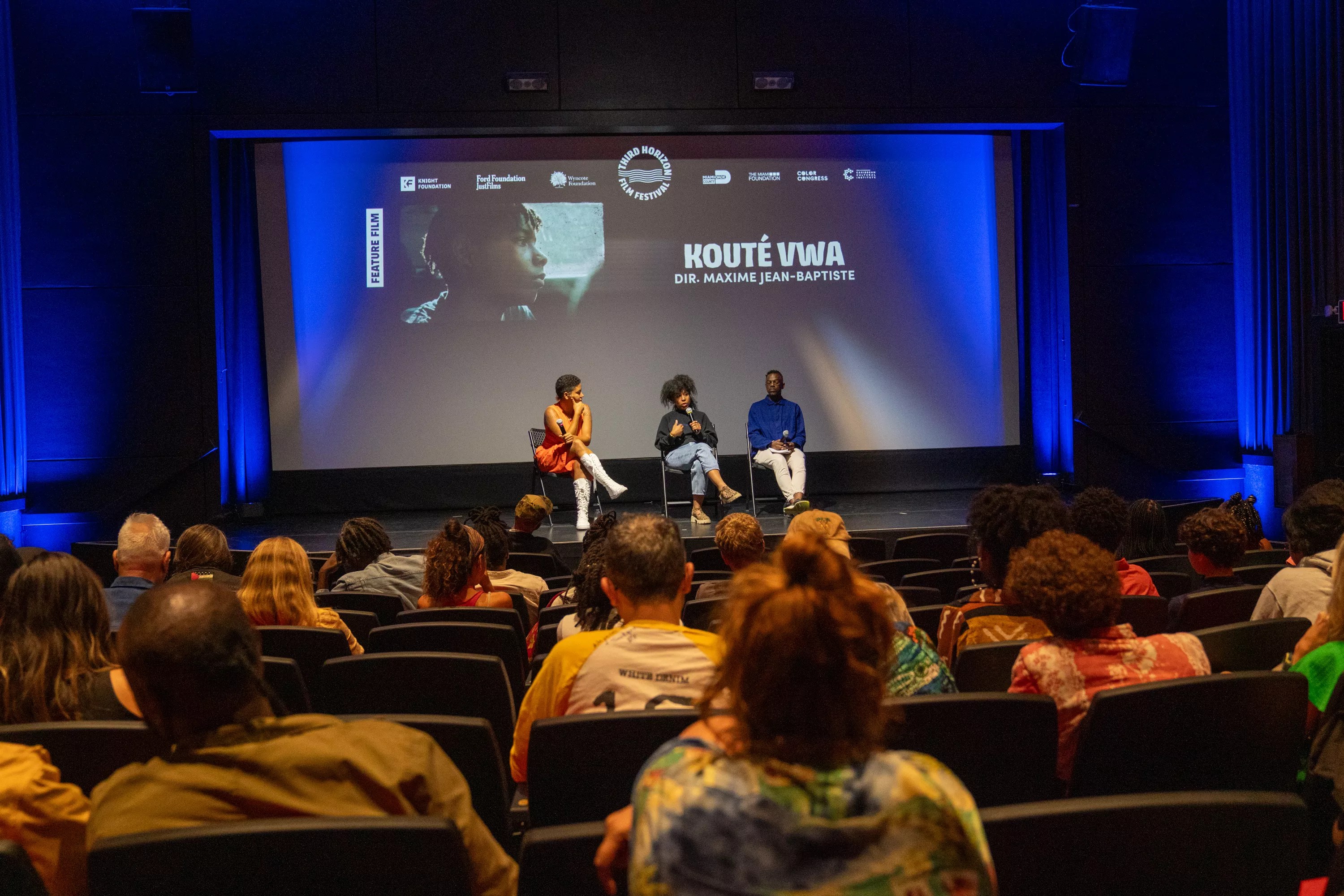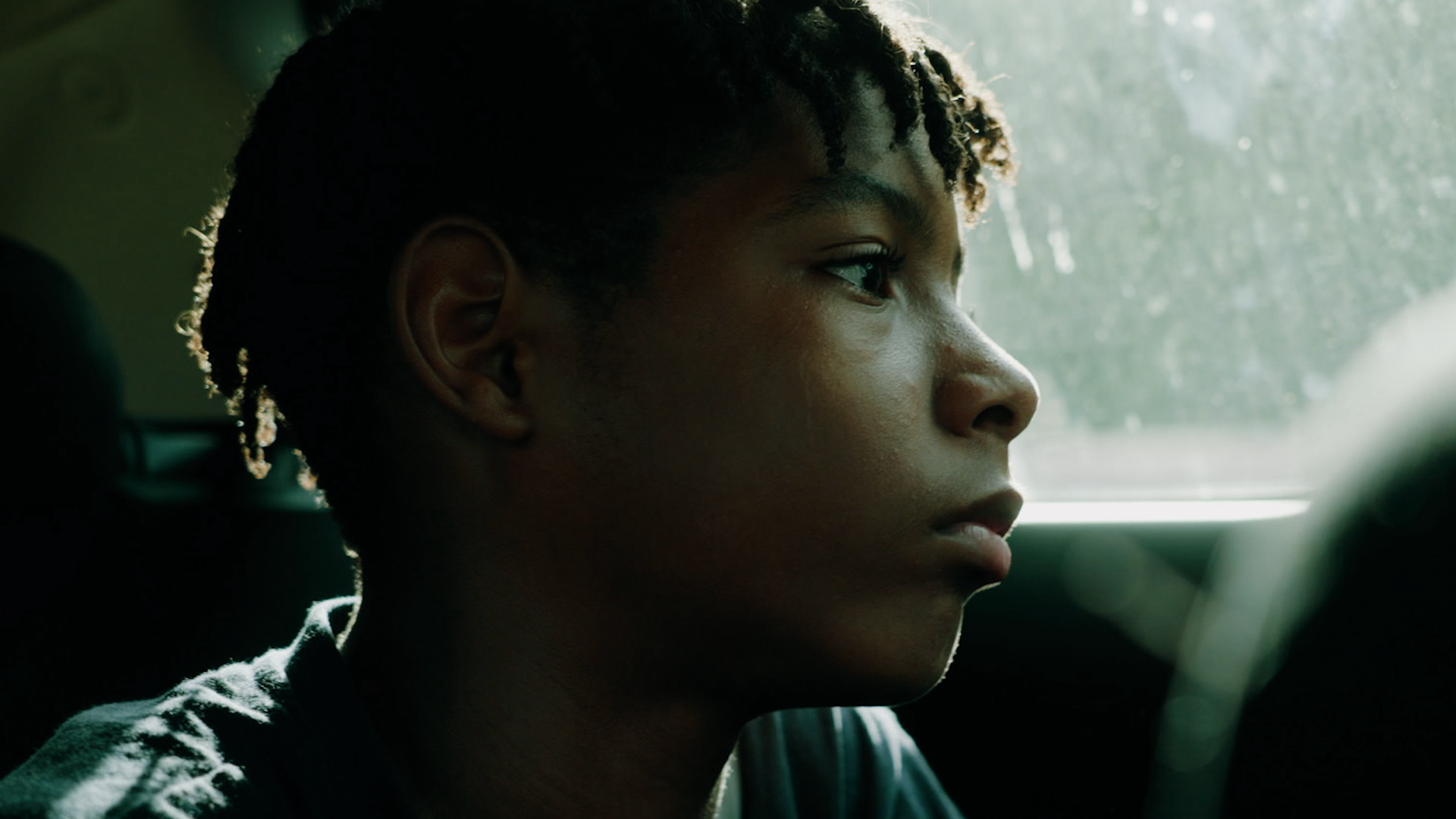
Vanessa Diaz

Audio By Carbonatix
It’s 1 a.m. on Saturday at the Red Rooster in Overtown, and there’s a party going down. As a rollicking crowd in the restaurant’s second-floor dance hall sways along to Afrobeats and reggae classics, the filmmakers and film lovers attending Third Horizon Film Festival mingle on the balcony outdoors. This is the third and final party at the festival – the night before featured a reggaetón perreo event at the Corner just a few blocks east – and it perfectly illustrates what Third Horizon is all about: Intimacy and joy; an unapologetic space for Caribbean culture.
Celebrating its tenth anniversary next year, the festival focusing on cutting-edge cinema from the Caribbean, with a particular eye on nonfiction, remains one of the most unique film events in Miami. They don’t screen commercial films, they don’t apologize for the often-radical perspectives on view, and they don’t talk down to their audience. The programming schedule – an opening night screening at PAMM and the rest at Little Havana’s Koubek Center -encourages viewers to see as much as possible by scheduling the films, panels, and parties back-to-back. It’s a festival that encourages deep participation: You get out what you put in.
It also makes you feel like a guest in someone’s home. The dinner party atmosphere makes it easy to get up close and personal with the filmmakers, many of whom attend with their movies and hang out before and after screenings. According to festival organizers, that’s intentional.
“We always want to be an intimate space that fosters dialogue and genuine connection,” says Jason Fitzroy-Jeffers, board chair of Third Horizon and a former festival director. “We don’t want this to be become a festival that is operating in like five different cinemas at the same time, because the community that we’re catering to is still at a point where people need each other in these closer, tighter spaces, to really go on a ride together for the entire weekend. We don’t want this to be impersonal.”

Third Horizon Film Festival co-founders Romola Lucas (left) and Jason Fitzroy-Jeffers (right).
Photo by Vanessa Diaz
A former Miami Herald reporter originally from Barbados, Fitzroy-Jeffers is a founding member of Third Horizon. His interest stemmed partially from what he observed covering the city’s Caribbean communities. The festival cofounders set out to create a space for viewpoints specific to Caribbean life and history.
“You can go to so many film festivals around the world that are huge, where there’s a lot of commerce, a lot of business happening – we are showing the works of filmmakers who, even when they go to bigger festivals or more popular festivals, are often marginalized within that space,” Fitzroy-Jeffers says. “We are very comfortable in doing something which is a very conscious counter to that.”
Third Horizon certainly makes room for stories that won’t be found elsewhere; some of them bleak and necessary to be revealed. A 1937 incident of ethnic cleansing in the Dominican Republic, in which 20,000 Haitians were murdered by the Trujillo regime, is the subject of Pierre Michel Jean’s documentary L’Oubli Tue Deux Fois (Twice Into Oblivion). Two parallel journeys are made in the film as a survivor returns to his onetime home while a Haitian theater troupe visiting the DR encounters the militarized modern border. Details of the so-called “Parsley massacre” – victims were found when troops asked them to pronounce the word “parsley” (“perejil” in Spanish) – mirror the crimes committed by the Nazis an ocean away, while the frontier that separates the two countries recalls the border wall built by Israel to separate the West Bank.
The presence of the theater troupe in the film isn’t novel. Much of the festival’s slate focused on performance and theater as a theme. The rousing documentary Koutkekout (At All Kosts), which opened the festival at PAMM, skillfully tells the inspiring story of the Quatre Chemins theater festival in Port-au-Prince, which continues amid the crumbling social order in the country. Actors and organizers flee across rooftops and hide from gang firefights as they rehearse, but the show must, and does, go on.

A still from directors Maxime and Audrey Jean-Baptiste’s Kouté Vwa (Listen to the Voices). The film screened at Third Horizon Film Festival 2025.
Third Horizon Film Festival photo
Some of the strongest films had very little to do with performance at all, at least on first glance. The Tobacconist, a strong short by Keifer Nyron Taylor following a down-and-out tobacco peddler on the streets of South London, impresses with its atmospheric black-and-white cinematography, reminiscent of La HaÁ¯ne, and its economical, empathetic storytelling. Friday night closer, Kouté Vwa (Listen to the Voices), from French Guiana, follows an 11-year-old boy in Cayenne whose family and community mourn the loss of his uncle Lucas, a DJ and carnival drummer killed ten years earlier. On its face, the film is a beautifully told meditation on living with grief. In fact, however, the characters in the movie are the actual family, playing themselves, of co-directors Maxime and Audrey Jean-Baptiste. What results is an unexpected blending of real life and fiction that renders the film even more profound. The techniques used in Kouté Vwa would not be uncommon in the work of Abbas Kiarostami or Jafar Panahi, two Iranian filmmakers who famously made use of real people (even themselves) reenacting their lives onscreen.
Just as Panahi has had to use subterfuge to make his films in repressive Iran, the makers of Bitter Cane had to get around no less than the dictatorship of “Baby Doc” Duvalier to make their documentary on the Haitian refugee crisis of the early ’80s. In a post-film Q&A, co-director Kim Ives detailed how the activist filmmakers put on their performances to skirt the authorities to make the film, forging documents and lying to American factory owners to secure candid interviews. The result is a scathing indictment of, more than anything, U.S. imperialism and capitalist exploitation of the tiny country. The film excoriates the upper classes that made Haiti unlivable for the majority of its people: Coffee plantation landlords and speculators exploiting sharecroppers, American industrialists paying wage laborers $2 a day while they make $5 an hour, and the American government that simultaneously bankrolls the Duvalier dictatorship and imprisons desperate migrants in the Krome Detention Center (if they even survive the boat trip to Miami).
Bitter Cane was part of a retrospective on Caribbean activist cinema in the ’70s and ’80s, and a few of the selections brought out an interesting cross-section of Miami’s Caribbean community. The showing of Oema foe Sranan (Women of Suriname), a documentary from the small South American nation, raised the interest of Vasisth Sukul, a Miami-based Surinamese filmmaker who wore the country’s football jersey to the screening. Sukul had attended the festival before, but the prospect of seeing a film from his homeland prompted him to bring his entire family to the show.
“They always find some interesting Caribbean films,” Sukul said of the festival. “I feel like they’re always weird, but in a good way.”